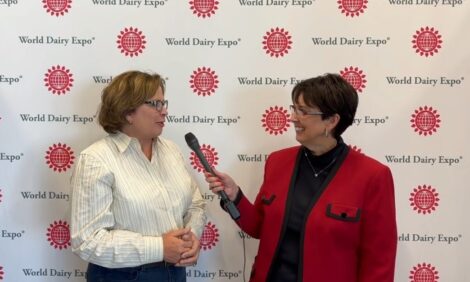



Expert Economist Highlights Pressing Issues in Agriculture and Rural Development
A global perspective on the challenges faced by Sub-Saharan AfricaInternationally recognised economist and expert in rural development and global food security, Dr. Uma Lele shared a global perspective on the challenges faced by Sub-Saharan Africa in agriculture and rural development, at the 2nd Annual Mohammad Karaan Memorial Lecture. The annual lecture is held in honour of the late dean of the Faculty of AgriSciences Professor Karaan at Stellenbosch University (SU).
Dr Lele's presentation touched on several pressing issues related to global food security and the challenges facing the achievement of the United Nations' Sustainable Development Goals. In particular, she highlighted the devastating impact of the ongoing conflict between Russia and Ukraine, which has led to the largest humanitarian disaster in recent history, the migration of millions of people, and a surge in food and commodity prices. The conflict has also diverted attention and resources away from efforts to end poverty and hunger in Sub-Saharan Africa and South Asia.
She noted that the current global food and nutrition challenge is far more complex and difficult to tackle than anticipated in 2015, and that reaching the Sustainable Development Goals under “business as usual" is unlikely.
The COVID-19 pandemic has worsened existing challenges, particularly in vulnerable regions like Sub-Saharan Africa and South Asia, where progress in moving away from agriculture has already lagged. The pandemic has also led to a rapid dietary transition, with a significant increase in the consumption of cheap, unhealthy food, contributing to the rise of obesity and non-communicable diseases.
She also identified political instability as a significant contributor to food insecurity and poverty in Africa. Instability often leads to conflict, displacement, and disruption of markets and agricultural activities, causing food prices to soar and making it difficult for farmers to access inputs and markets. Addressing political instability in Africa is therefore critical to achieving food and nutrition security and reducing poverty in the continent.
"To achieve the Sustainable Development Goals, we need to tackle the issue of malnutrition in a comprehensive manner, addressing both the supply and demand for nutritious food. This will require significant investment in production and trade to ensure a steady supply of affordable, healthy food. It is equally important to focus on creating employment and increasing incomes for the poor, educating consumers on healthy food choices, and developing efficient and low-cost value chains. We must invest in physical infrastructure to increase effective demand for nutritious food. However, we must also be mindful of food safety regulations, ensuring that our efforts to improve access to nutritious food do not compromise the health of consumers," said Dr Lele.
Moreover, an emphasis was on the importance of structural transformation, which involves a decline in the share of agriculture in GDP and employment, total productivity growth, demographic transition, and overall income growth. Poverty is concentrated in rural areas, highlighting the need for structural transformation efforts to prioritise the development of rural economies and communities. Investment in agriculture and productivity growth is necessary to support sustainable economic development and achieve the Sustainable Development Goals.
Overall, the presentation underscores the urgent need for comprehensive action to address the complex and interrelated challenges facing in global food security and the achievement of the Sustainable Development Goals (SDG). Political instability, global warming, the impact of COVID-19 and the challenges of supply and demand for nutritious food and structural transformation require immediate attention, and the need to invest more in agriculture, education, and health in order to build a strong economy.
“Regarding the difficulties in rural development that governments and farmers face on a global scale, Dr Lele's insights are priceless. She provided workable solutions to these problems. Institutions, governments, and the private sector should seriously consider implementing these solutions. Disregarding her advice would be our own peril." Says Professor Andre Jooste, Head of Agricultural Economics at SU.


